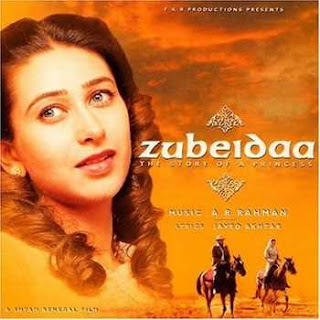Bachna Ae Haseeno
 Bachna Ae Haseeno (Beware, Beauties; 2008) is an enjoyable time-pass, as they say, but it could have been more. The premise--a man seeking out past girlfriends in order to apologize for his caddish behavior--seems promising. Alas, somewhere between Aditya Chopra's story and the realization of the film, something goes amiss.
Bachna Ae Haseeno (Beware, Beauties; 2008) is an enjoyable time-pass, as they say, but it could have been more. The premise--a man seeking out past girlfriends in order to apologize for his caddish behavior--seems promising. Alas, somewhere between Aditya Chopra's story and the realization of the film, something goes amiss.
(As an aside, the title of the film is taken from an R. D. Burman song for the film Hum Kisi Se Kum Nahin (1977), which starred Rishi Kapoor--father of Ranbir Kapoor, the male lead in Bachna Ae Haseeno. Ah, Bollywood...)
Warning: some spoilers follow.
We see Raj (Ranbir Kapoor in a far more assured and enjoyable performance than in his debut Sawaariya (2007)) romancing three women at different stages of his life. First there's the naïve Mahi (convincingly played by Minissha Lamba), whom he meets during a pre-college Eurail tour. The parallels to Dilwale Dulhania Le Jayenge (1995)--coincidentally written and directed by Aditya Chopra--are underlined explicitly (not to say relentlessly). Like DDLJ's Simran (Kajol), Mahi dreams of being swept off her feet by an irresistible romance, but in reality will be returning to India for an arranged marriage. Unlike DDLJ's Raj (Shah Rukh Khan), though, Raj doesn't follow her. Instead he brags to his buddies about how far he's gotten with Mahi during the 24 hours they spent together after missing the train. Mahi overhears his boasting, and her dreams of romance are shattered.
Six years later, Raj is in his mid-twenties and is living in Mumbai with aspiring model Radikha (Bipasha Basu; I've never been Bipasha's biggest fan, but she does a creditable job here). When Raj and his game-design partner Sachin (Hiten Paintal) win a coveted posting to Sydney, Radhika plans for a wedding on the eve of what she assumes will be her departure with Raj. But Raj, panicking at the thought of commitment, lies to her about when he's leaving. Radhika is left waiting at the altar as Raj and Sachin jet off to Sydney.
Six years after that, Raj--now the thirtyish head of a highly successful game-design team--has obviously been enjoying the hedonistic nightlife of Sydney to the hilt. But then a late-night encounter with gorgeous taxi driver/convenience-store clerk/MBA student Gayatri (the stunning Deepika Padukone) has Raj suddenly rethinking his aversion to commitment. Gayatri, though, is a smart and determinedly independent woman who isn't ready for marriage and refuses to be kept by Raj. It's refreshing to see a female character in a Bollywood film for whom marriage isn't the supreme goal, and who can go to bed with a man she's attracted to without getting punished by the screenwriters.
Instead, it's Raj who is hurt when he unwisely decides to push the marriage issue, and gets a bitter taste of his own medicine. He then decides that he has to make amends to Mahi and Radhika for his past cruelties. He's in for some surprises, though...
On the plus side, the actors are all appealing, the locations (Switzerland, Bombay/Mumbai, Sydney, Italy, Thailand and Amritsar) are beautifully shot by director Siddharth Anand, and Vishal-Shekar's music (apart from the wretched English-language rock soundtrack that crops up repeatedly in Sydney) is catchy, especially Raj and Gayatri's "Khuda Jaane" (sung by Krishna Kumar Kunnath and Shilpa Rao):
Despite the increasingly unconvincing script in the second half, Bachna Ae Haseeno is worth watching for the performances, especially those of Deepika, Minissha and Ranbir, and for the eye-candy. Beyond that, keep your expectations in check.













